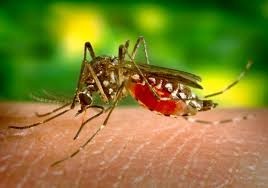
The Department of Health reported today a Brown County resident died of West Nile virus (WNV) associated causes, the state’s first WNV related death this season. The individual was in the 80 to 89 age group.
“Our sympathy is with the family. We only hope their tragic loss will encourage others to take the threat of West Nile virus seriously,” said Dr. Joshua Clayton, state epidemiologist for the department. “We can’t emphasize enough how important it is for people to protect themselves and their families by using repellent and avoiding the outdoors when mosquitoes are most active.”
To date this season, South Dakota has reported 10 cases of human WNV and three hospitalizations. Nationally, 39 cases and one West Nile-associated death have been reported. Clayton said weekly surveillance updates will show cases continuing to climb.
South Dakotans can reduce their risk with the following precautions:
Apply mosquito repellents (DEET, picaridin, oil of lemon eucalyptus, para-menthane-diol, 2-undecanone or IR3535) to clothes and exposed skin.
Reduce mosquito exposure by wearing pants and long sleeves when outdoors.
Limit time outdoors from dusk to dawn when Culex mosquitoes, the primary carrier of WNV in South Dakota, are most active.
Get rid of standing water that gives mosquitoes a place to breed.
Regularly change water in bird baths, ornamental fountains and pet dishes.
Drain water from flower pots and garden containers.
Discard old tires, buckets, cans or other containers that can hold water.
Clean rain gutters to allow water to flow freely.
Support local mosquito control efforts.
These precautions are especially important for people at high risk for WNV, including individuals over 50, pregnant women, organ transplant patients, individuals with cancer, diabetes, high blood pressure or kidney disease, and those with a history of alcohol abuse. People with severe or unusual headaches should see their clinician.
Visit the department’s website at westnile.sd.gov for more information.
